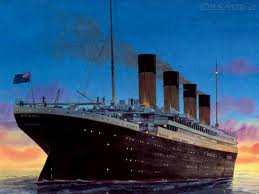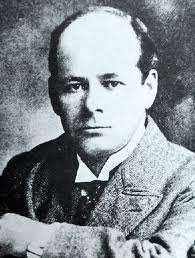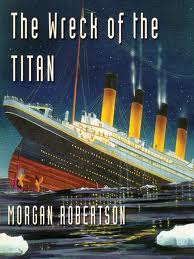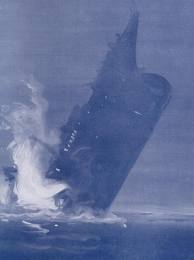Friends,
One century ago at 11:40 pm (ship’s time) 14 April 1912, the brand new RMS Titanic on its maiden voyage, carrying 2,223 people – and only enough lifeboats for 1,178 – sliced its starboard side on an iceberg. Two-and-half hours later at 2:20 am April 15, she slipped under still and icy 28-degree waters around 375 miles (600 km) south of Newfoundland taking 1,514 passengers to the bottom, many of whom numbered the elite of the Belle Epoch, the Edwardian Era, soon to end in the catastrophe of the First World War a few years later. A significant number of documented premonitions of the coming disaster remain – a prescient record not to be rivaled until almost a century later by seers and regular people alike who anticipated and documented their forebodings of the Twin Towers collapsing on “9/11”, from hijacked planes crashing into the World Trade Center towers on 11 September 2001. One of the most chillingly detailed and accurate premonitions about the sinking of the Titanic innocently enough appeared as a short story published in 1894. It previewed the disaster in a fiction opus fourteen years before it happened.Morgan Robertson (1861-1915) had left a life at sea in 1894 to try his hand at short story writing. He would eventually publish 200 of them, but he will forever be remembered for one story he began composing on an evening in 1897. Robertson started by unraveling the mental knots of his all-day writer’s block. As he relaxed, he felt the familiar presence of what he called his “astral writing partner” take the helm and cast him adrift in an ocean of images. A vision for a new story coalesced through the imagined fog and icy waters of the North Atlantic. A great ocean liner on her maiden voyage, her three twisting screws pushing 75,000 tons at 25 knots, cleaved the chilled waters on a collision course with an iceberg!
Robertson saw the name Titan on her bow, and knew this 800-foot ocean liner would have 19 watertight compartments, giving both passengers and crew the illusion that she was unsinkable. The folly of such a claim would reveal itself when, on slicing her bow against the unseen iceberg, Titan would sink and a majority of her 3,000 passengers would drown because there were only twenty-four lifeboats.
The cover of Robertson's story, The Wreck of the Titan, written and published 14 years in advance of the Titanic's maritime disaster.
Robertson set to writing The Wreck of the Titan, or Futility his fictional chronicle of the ultimate maritime disaster, which was to take place in the mid-Atlantic on a moonless April night. Fiction became reality fourteen years later. On her maiden voyage, the Titanic cut the icy waters of the North Atlantic off Newfoundland, her three propellers churning 66,000 tons at 23 knots toward an unseen iceberg. There were only twenty-two lifeboats aboard, since the 883-foot ocean liner was considered unsinkable. In spite of her designer’s arrogant claim, the collision with the iceberg had sliced open three of her sixteen watertight compartments – one too many to survive. The Titanic and a majority of her 2,223 passengers faced an icy death on the moonless night of 14 April 1912.
Robertson was not to profit from this story, never making more than $5,000 a year for any of them. Distressed by the financial strain and failing health of his wife and his fading creative powers, Robertson had himself committed to a psychopathic ward of Bellevue Hospital. After his release he returned to writing but his stories lacked the former “punch.” He was found leaning against a bureau in his Atlantic City hotel room dead on his feet from a heart attack, three years after the sinking of the Titanic in March 1915.
At least nineteen people had recorded premonitions of the sinking of the Titanic several weeks before the disaster. For instance, three weeks before the Titanic planned to set off from Southampton on her maiden voyage, English businessman J. Conon Middleton booked passage so he could attend a business conference in New York. Not long afterwards he experienced a nightmare wherein he floated, as if astral traveling, in the hoary night air gliding over a horrific scene of the Titanic laying on her side with a great and tangled mass of people splashing and drowning in the icy waters around the stricken ship.
Middleton, trying to retain his British stiff upper lip, initially rejected the dream as poppycock, just traveler’s anxiety, what? The more he tried to suppress memory of it the harder it was to forget the dream, especially as his date to board Titanic approached. He felt quite inwardly frightened and equally ashamed that friends and family might ridicule him if he would mention the nightmare. It was nonsense, really.
Keep reading:
http://www.hogueprophecy.com/2012/04/the-titanic-prophecies/




No comments:
Post a Comment
Note: only a member of this blog may post a comment.